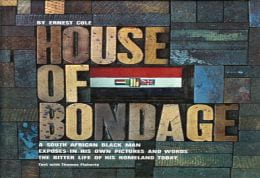5th Nov 2014 5:00pm-7:00pm
Grand Parade
Ernest Cole’s House of Bondage, the United States Information Agency and the Cultural Politics of the Cold War
Professor Darren Newbury, University of Brighton.
The aim of this paper is to position Ernest Cole’s photographs of apartheid South Africa, specifically his book House of Bondage, in relation to the global political forces that shaped their movement and interpretation during the Cold War. Often taken to represent the reality of a uniquely oppressive racist regime, Cole’s photographic images of life under apartheid must, at the same time, be figured within a Cold War visual economy. Better known for its sponsorship of Edward Steichen’s Family of Man exhibition (which was shown in South Africa in 1958), the United States Information Agency (USIA), an arm of US Cold War public diplomacy, also had an impact on Cole’s project. This paper considers two dimensions: first, Cole’s interactions with the US agents of public diplomacy in South Africa via their offices in Johannesburg, in the period immediately prior to his exile; and, second, how the Cold War contest over representations of race shaped both the production and reception of his work. Cole’s arrival in New York in the late 1960s brought his photographs of racial oppression in South Africa into a complex relationship with Cold War visual narratives of race, dominated by images of African-Americans during a period of racial tension and the struggle for civil rights.
Darren Newbury is Professor of Photographic History in the College of Arts and Humanities, University of Brighton. He published Defiant Images: Photography and Apartheid South Africa (University of South Africa Press) in 2009 and People Apart: 1950s Cape Town Revisited. Photographs by Bryan Heseltine (Black Dog Publishing) in 2013, and has curated exhibitions at the Pitt Rivers Museum, University of Oxford, and District Six Museum, Cape Town. He has been editor of Visual Studies since 2003.


Leave a Reply